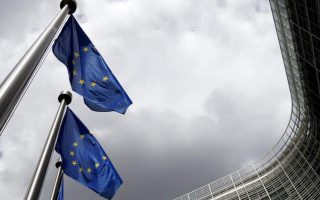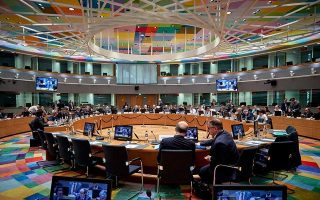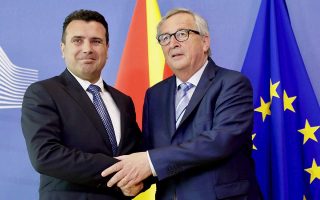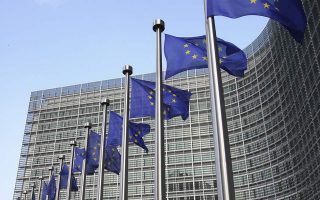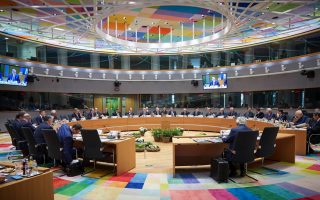EU’s Tusk ‘cautiously optimistic’ over top jobs deal on Thursday
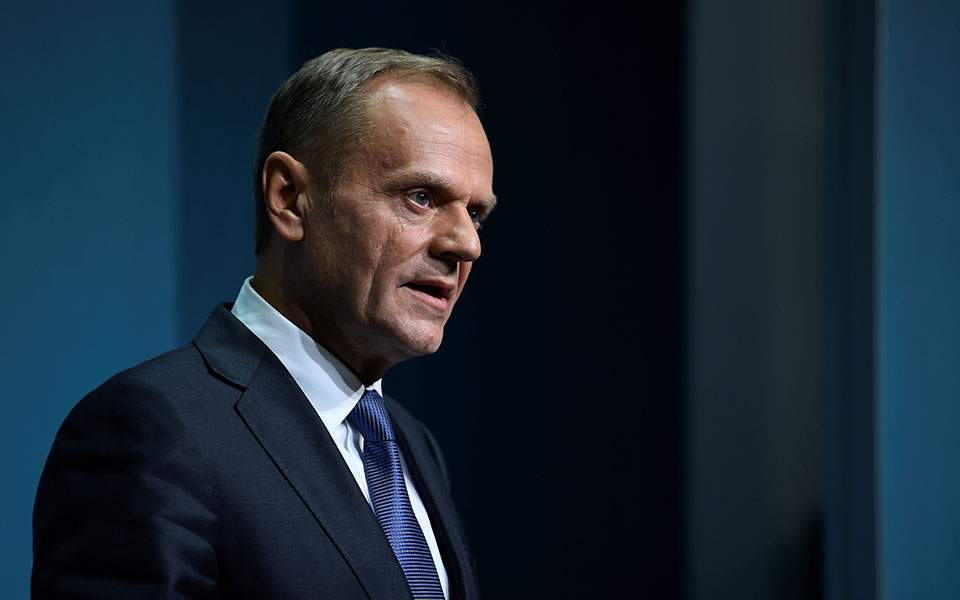
European Council President Donald Tusk said on Wednesday that he was “cautiously optimistic” that EU leaders would agree names to hold the bloc’s top jobs when they meet in Brussels on Thursday.
Multiple diplomats and officials have told Reuters it may be too soon for a deal at the summit, which will be chaired by Tusk, citing disagreement between Berlin and Paris over a German candidate Manfred Weber’s bid to take over at the helm of the bloc’s executive Commission later this year.
“There are different views, different interests, but also a common will to finalize this process before the first session of the European Parliament,” Tusk said in an invitation letter to the 28 national leaders.
“I remain cautiously optimistic, as those I have spoken to have expressed determination to decide swiftly. I hope we can make it on Thursday.”
The new leaders will help set the EU’s course for the next five years as the bloc struggles with weak economies and a wave of euroskeptic sentiment at home, as well as facing external challenges from the United States to Russia to China.
Following an EU-wide election last month, the new European assembly is due to gather for the first time on July 2 and should then elect its new president for 2019-24.
That job is part of a package of the EU’s most senior leadership positions that come vacant soon.
They include replacements for European Commission President Jean-Claude Juncker, the bloc’s chief diplomat Federica Mogherini, the head of the European Central Bank (ECB) in Frankfurt Mario Draghi, and Tusk himself.
“I think that there is a chance of reaching an agreement at the summit,” said a senior EU diplomatic source. “At least, we are going to know which candidacies can fly and which couldn’t.”
Others have pointed out, however, that German Chancellor Angela Merkel could not drop Weber – who is a deputy head of her Bavarian sister party CSU – just yet.
Weber’s bid to lead the European Commission is firmly opposed by French President Emmanuel Macron, as well as the socialist Spanish Prime Minister Pedro Sanchez who is seeking to raise Madrid’s sway in the bloc.
Weber's last dance?
Should a deal prove elusive this week, Brussels sources said another leaders’ summit could take place on June 30 or July 1, or even in late August.
“There’s a strong desire to get things done quickly. I don’t see things going on beyond the summer,” another senior EU diplomat said on Wednesday.
The EU needs to balance out political affiliations, regional distribution and the candidate’s own profiles. The bloc is also seeking to let more women into its male-dominated leadership, with expectation that senior Commission roles would go to candidates such as Spain’s Economy Minister Nadia Calvino.
Beyond a firm majority – or, preferably, unanimity – among the 28 national leaders, any candidate to run the next European Commission must also be approved by the new European Parliament.
Despite voting to quit the bloc in 2016, Britain remains one of the 28 members and has members of the European Parliament until it finally leaves.
Political factions in the parliament are still discussing a coalition agreement and a pro-EU majority is in the works between the center-right European People’s Party (EPP), the socialists, the liberals and the greens.
The EPP, the parliament’s largest multi-country grouping, has so far stuck firmly with Weber. The socialists promote Dutchman Frans Timmermans, who currently is a deputy head at the Commission responsible for the rule of law.
The bloc’s current top competition official in Brussels, Denmark’s Margrethe Vestager, runs for the liberals. The group, which includes Macron’s allies, on Wednesday elected a former Romanian prime minister, Dacian Ciolos, as their new leader.
Brussels sources said Merkel’s condition for eventually dropping Weber could be demanding that no other candidate proposed by the European Parliament – Timmermans or Vestager – get to lead the Commission either.
Other names in the running include the bloc’s Brexit negotiator and center-right Frenchman Michel Barnier, Belgium’s liberal caretaker Prime Minister Charles Michel, Bulgaria’s World Bank head, Kristalina Georgieva, or Lithuania’s outgoing President Dalia Grybauskaite.
[Reuters]

